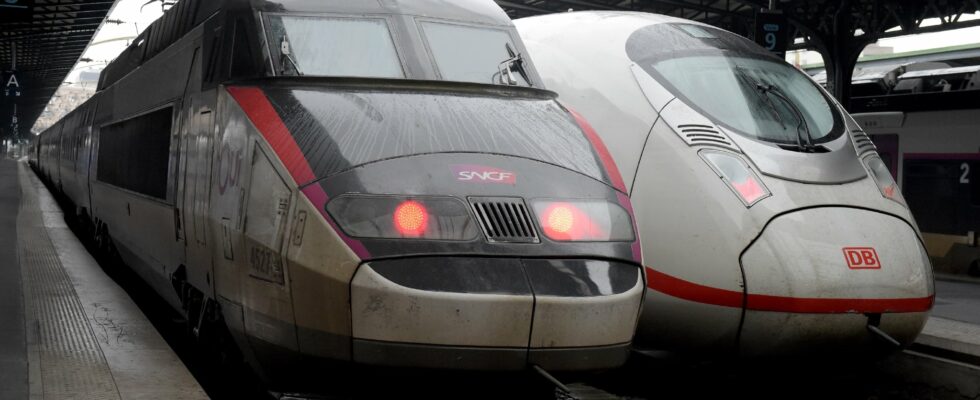Nobody cares about trains that arrive on time, according to a journalistic mantra. Except, perhaps, when it comes to ranking the best railway companies in Europe. Monday December 9, the NGO Transport and Environment (T&E) published a ranking of 27 companies. Objective: to offer a complete comparison framework, but also to allow companies to draw inspiration from good practices to progress. If it is a question of establishing a roadmap for the consumer, the goal is also political. “An efficient rail system is one of the cornerstones of the zero-emission mobility system,” writes T&E.
With only 59% of travelers in the European Union satisfied with the punctuality and reliability of the railways, there is an urgent need for improvement on rail. In total, eight criteria were scrutinized, with different coefficients: price (accounts for 25% of the final score), reliability, available discount programs, compensation policies, passenger experience and existence of night trains or places for bicycles. And the ranking goes against certain preconceived ideas, crowning the Italian Trenitalia number one and relegating Eurostar to the back of the pack.
Let’s start with the good students: if Trenitalia excels in almost all categories, with the exception of the bicycle offer, it is followed by the Swiss national company SBB and the company RegioJet, which operates trains in the Czech Republic and to border countries. For its part, the Austrian company ÖBB comes fourth. All receive an overall rating of at least 7 out of 10.
SNCF in the top 5
And in fifth place: cocorico! The French media are almost surprised to see the SNCF appear in this top 5, while the company, still managed by Jean-Pierre Farandou, is often criticized for its repeated strikes. The T&E report is however realistic: if there remain “reliability problems”, a cycling policy to improve and above all prices that are still too high, the SNCF manages to obtain a score of 10 out of 10 concerning the passenger experience and respectively scores of 6.7 and 7 on the attractive refund policy and the night train offer (eight lines in 2024).
If we go down in the ranking, passing through the Belgian SNCB (12th position) and the British GRW (22nd position), we find the bad students. Like Ouigo – low-cost subsidiary of SNCF – in 25th position which despite ultra-competitive prices – second cheapest operator in Europe – suffers from an absence of reduced fares and poor reliability . The company – majority owned by SNCF Voyageurs – suffers according to the ranking from a lack of reliability which increases its final score.
Eurostar, prices twice as high as the European average
Then finally comes Eurostar, the Franco-British company founded in 1990, in 27th position. To justify its place behind the Greek Hellenic Trains, the NGO Transport and Environment indicates that ticket prices are twice as high as the European average, without guaranteeing the quality of service. And that’s not the only downside. On its pricing policy, Eurostar only receives 2.1 out of 10, disadvantaged by the absence of night trains and space for bicycles. “Eurostar could improve its score by implementing some rapid changes, but this requires the support of public authorities, notably the EU, the British government and the Member States in which it operates,” recommends the NGO.
“Exorbitant ticket prices are driving passengers away from trains. To unlock the full potential of rail, we need to make tickets more affordable. This is a shared responsibility between industry and governments,” the report notes. Victor Thévenet, head of rail policy at T&E. The other point to remember is that higher ticket prices do not guarantee better service. And to illustrate what sometimes seems to be a contradiction for the consumer, let’s take the example of the British and Czech airlines – GWR and RegiotJet: they have comparable scores of 6.6 on non-price factors, while the price of a GWR ticket is six times higher than those of RegioJet.
